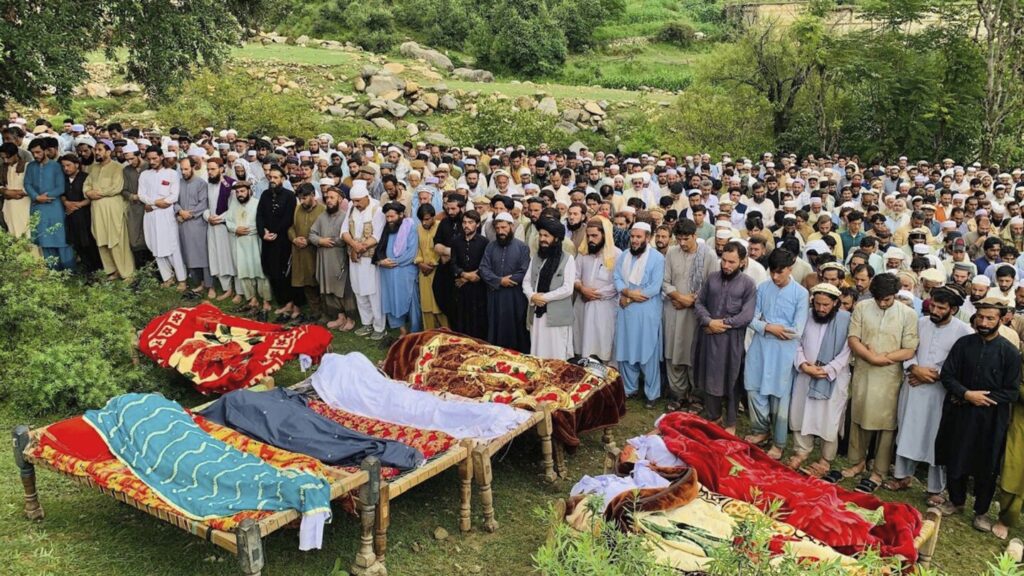Flash floods in Pakistan and India have resulted in over 280 deaths, with numerous others missing. The deluge, triggered by heavy rainfall, affected regions in India-controlled Kashmir and northern Pakistan, leading to significant rescue efforts that have saved approximately 1,600 individuals. Climate change is believed to contribute to the increasing frequency of such extreme weather events.
In India, the village of Cho City was particularly hard-hit, with flash floods killing at least 60 people, while 80 remain unaccounted for. Communities, including a major kitchen for Hindu pilgrims, were devastated, leading to emergency evacuations. In Kashmir’s Kishtwar district, rescue operations are ongoing as safety measures for the annual pilgrimage have been suspended.
In the neighboring Pakistani regions, especially in Khyber Pakhtunkhwa, over 243 people have died, with many still reported missing. Rescue teams are using boats and helicopters to reach stranded residents, including about 2,000 tourists trapped due to the flooding. Meanwhile, authorities recorded a total of 556 rain-related fatalities since late June.
The floods have also caused significant damage to infrastructure, including key trade routes and hydroelectric projects, prompting government warnings about increased risks due to glacial lake flooding. Analysts attribute these rainfall patterns to climate change, noting a 10-15% increase in rain intensity linked to global warming.
Source link


